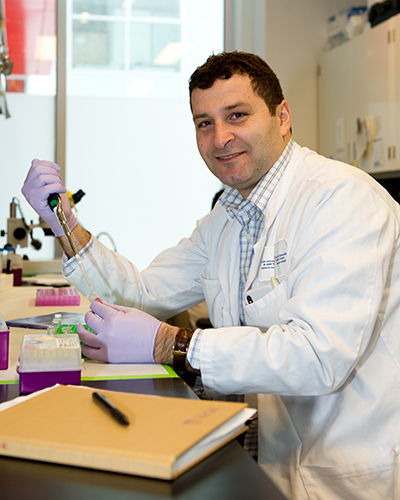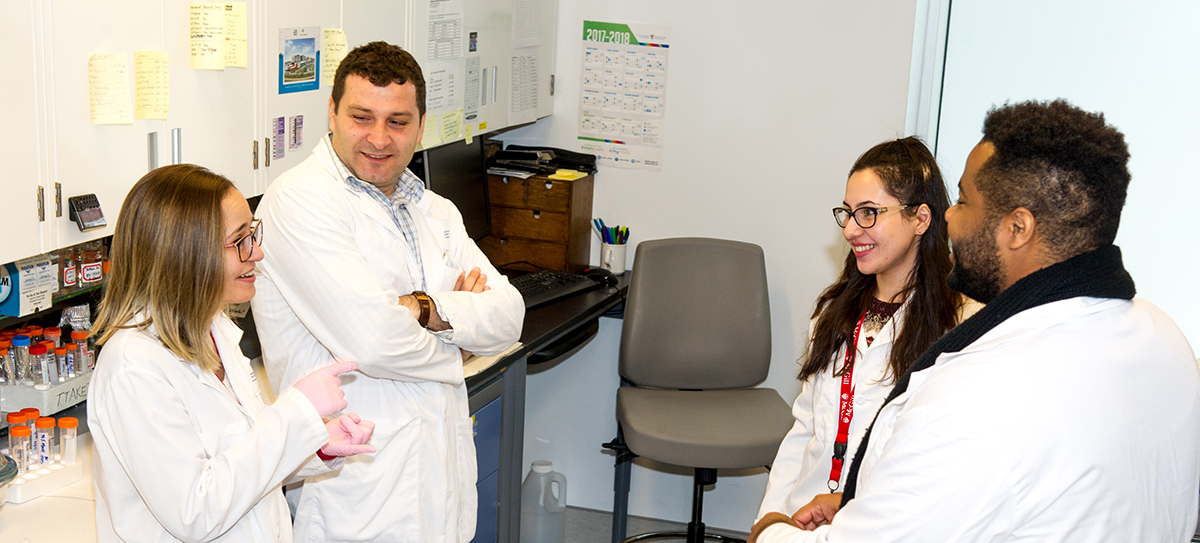More hope for young cancer survivors
While childhood cancer survival rates continue to rise, a significant threat exists among young patients who have undergone cancer treatments as children: the inability to have kids of their own.
Dr. Sharon Abish, pediatric oncologist at the Children’s, works closely with families of children battling cancer. “After receiving the shocking news of a cancer diagnosis for their child, parents are then usually faced with hearing long lists of possible effects of the therapy their youngsters will receive,” she says. “The mention of potential impact on future fertility almost always elicits a mix of disbelief and sadness.”
But there is hope, thanks to philanthropic organizations like the Morris and Rosalind Goodman Family Foundation.
 Businessman Morris Goodman and his wife, Rosalind established their family Foundation in 2005 to help enrich civil society in Israel and North America. Thanks to the Goodman Fellowship at the Montreal Children’s Hospital, Dr. Samer Tannus – who studied at one of the top universities in Israel – is now doing research in Montreal
aimed at giving these cancer patients a chance at one day starting their own family.
Businessman Morris Goodman and his wife, Rosalind established their family Foundation in 2005 to help enrich civil society in Israel and North America. Thanks to the Goodman Fellowship at the Montreal Children’s Hospital, Dr. Samer Tannus – who studied at one of the top universities in Israel – is now doing research in Montreal
aimed at giving these cancer patients a chance at one day starting their own family.
Presently, there is no option for fertility preservation procedures for prepubertal girls undergoing cancer treatment. For teens, procedures currently available are often challenging medically, physically and emotionally. ”My experience in long-term follow up clinics proves that this frequently becomes the issue with the biggest impact on quality of life for young women,” says Dr. Abish.
At the outset, the question may be asked, “why not simply freeze ova from a young girl set to undergo cancer treatment?” Dr. Tannus, who notes that fertility is easier to ensure in boys, thanks to the fairly simple process of freezing sperm, says the reality is quite different for girls. “Transplanting such ovaries is very difficult and requires a very high level of skill not found everywhere.” He explains also that freezing ova from girls aged 14 or 15 could never help younger girls not yet old enough to have fully-formed reproductive eggs. But the overriding concern remains the possibility that the frozen ova, once transplanted, could reintroduce cancer cells into the body.
Dr. Tannus is thankful for the support from the Morris and Rosalind Goodman Family Foundation. Working with colleagues at the MUHC Research Institute, he has been able to report promising results when using special three-dimensional “vitro gel” to grow mature ovarian follicles in mice.
“Hopefully, the results in humans will be the same,” says Dr. Tannus, who explains that by developing in vitro, the ova obtained could then be transplanted and fertilized without fear of reintroducing cancer cells. “It will be a major advancement.” Such an advancement will benefit not only families here in Montreal and Quebec, but also in Israel, where Dr. Tannus will return and share what he has found.
The late Rosalind Goodman, a tireless volunteer and fundraiser who co-founded the Foundation, had this maxim: “We are not asking for ourselves, but for those who aren’t able to ask.” Those like young cancer patients for whom we can one day provide the wonderful experience of pregnancy thanks to the Morris and Rosalind Goodman Family Foundation.
